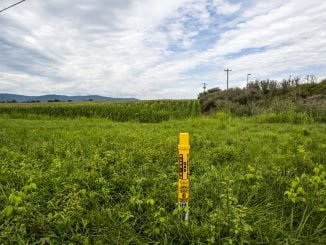
RALEIGH — An audit of Hurricane Florence Disaster Recovery funds by N.C. State Auditor Beth Wood’s office has found hundreds of millions of dollars distributed with limited monitoring and accountability.
The audit identified $502 million of Hurricane Florence Disaster Recovery Funds were distributed with limited monitoring. Additionally, $783 million was distributed to recipients with no way to measure results.
Hurricane Florence hit North Carolina in September 2018, causing widespread wind damage and was accompanied by historic flooding. Over 35 deaths in the state were blamed on the storm which was estimated to have incurred around $4.8 billion in damages. The following month, the North Carolina General Assembly created the Hurricane Florence Emergency Response Act.
Through multiple pieces of legislation, Lawmakers appropriated roughly $942.4 million to the recovery fund to be dispersed through upwards of five state agencies and other entities related to hurricane recovery efforts. According to the audit, $783 million had been distributed from the fund as of Jan. 31, 2021.
The N.C. Department of Public Safety (NCDPS) is the state agency that lawmakers designated to disperse the disaster recovery funds. The audit’s findings state NCDPS “did not design and implement procedures to ensure that Hurricane Florence Disaster Recovery Funds were being spent in accordance with Hurricane Florence Disaster Recovery legislation” or that the programs “operated by recipients of Hurricane Florence Disaster Recovery Funds were achieving their legislatively intended results.”
NCDPS Secretary Eddie Buffaloe’s response reiterated the audit’s findings and recommendations but neither concurred with nor denied them. Buffaloe instead said that legislation “outcome language may be vague” and that his department has to therefore deliver funds to various entities to the best of its ability.
Buffaloe also said NCDPS uses a “Scope of Work” document to guide and track the progress of appropriations but wrote that “Nevertheless, the Department’s authority is limited in withholding any funds or providing oversight on grants.”
This is very concerning,” said House Majority Leader John Bell (R-Wayne) said in a joint statement with Deputy Majority Leader Rep. Brendan Jones (R- Columbus). “It is also sadly part of a pattern we have seen from the Cooper administration when it comes to mishandling hurricane relief funding.”
“We intend to look into this issue more closely through our oversight committees to ensure proper oversight and guidelines are in place to make sure these funds are spent appropriately and get to those in need,” Bell said.
Jones echoed Bell’s sentiments, stating that it “frustrates me to no end seeing the numbers released yesterday,” and that “After 4 long years, it is grossly apparent as to the absolute negligence of Gov. Cooper and his administration in dealing with this tragic situation.”
The lawmakers’ joint statement also referenced a May 2019 report by the non-partisan Program Evaluation Division (PED) at the General Assembly detailing the Cooper Administration’s mishandling of Hurricane Matthew recovery efforts.
The PED report, titled “Administrative Missteps and Lack of Expertise Led to Delays and $3.7 Million in Unnecessary State Spending for Hurricane Matthew Recovery,” found that “more than two years since Hurricane Matthew made landfall, the state has spent only 1% of its total $236.5 million” of the Community Development Block Grant Disaster Recovery funds awarded by the federal government.
Following Hurricane Matthew, Gov. Roy Cooper was also criticized for dodging questions from the media about stalled recovery spending and last-minute changes in contracts for managing recovery projects.
In one instance, North Carolina Emergency Management Service (NCEMS) awarded a project contract to a company called AECOM, only to withdraw it a month after work started. As reported by WBTV at the time, NCEMS tried to alter the bid process to change the outcome of which of three companies would get the award. The contract was ultimately re-awarded to a competitor, IEM, whose CEO had donated the maximum amount to Cooper’s gubernatorial election campaign.
Cooper also took a hit for releasing campaign-style videos showing him shaking hands with victims of the storm that one editorial board criticized as inappropriately “self-congratulatory.”




